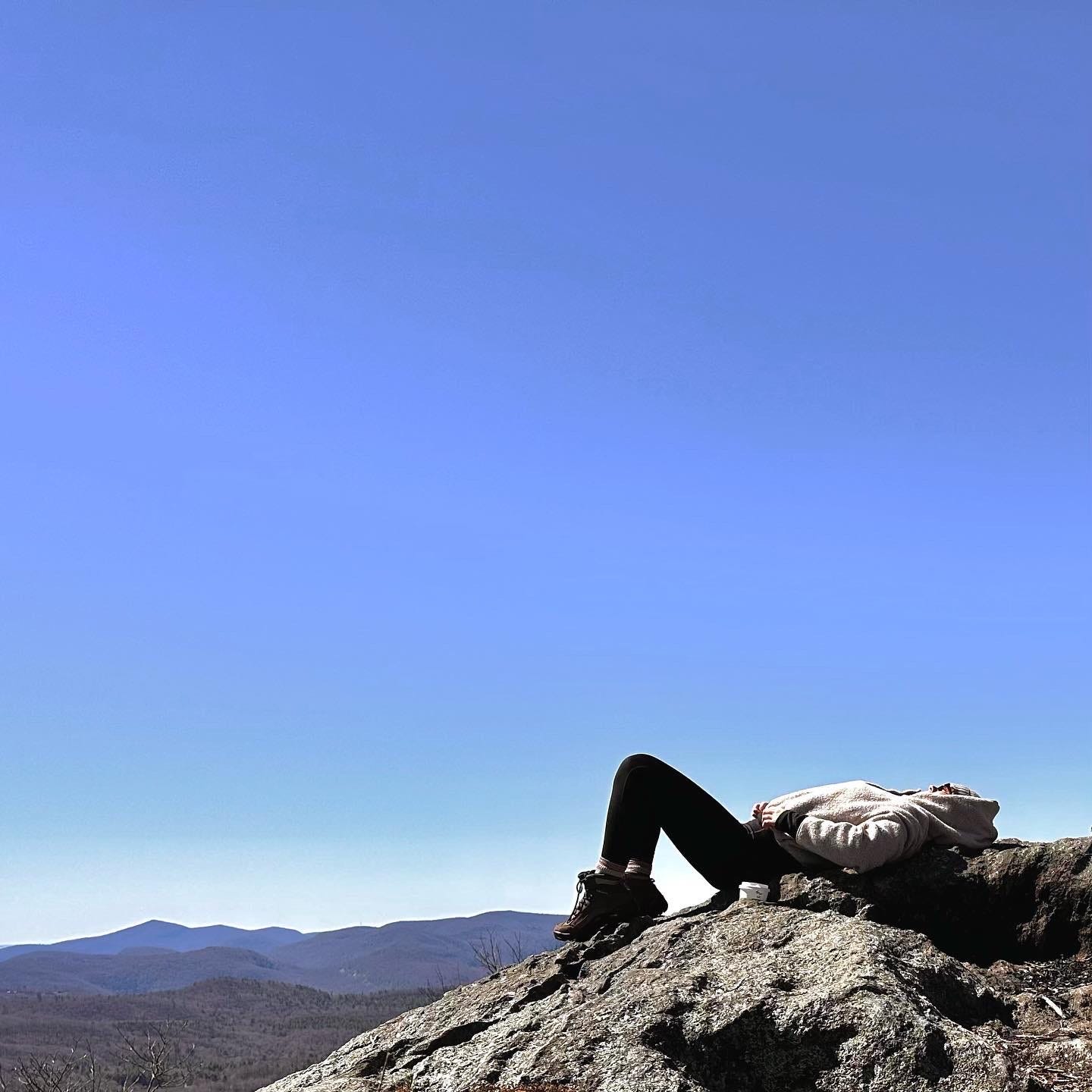Happy Monday Folks,
It’s been a whirlwind of a few weeks, and quite some time since I have sat at this laptop on a Monday morning to write here. Here’s a few things from the last month: a dead laptop that took three weeks to get working again, a whirlwind trip down to Atlanta and back up through the mountains, another whirlwind trip to the Outer Banks to give a presentation, and one thesis draft turned in as of this morning. I’ll share more on that soon, but needless to say, it has been the kind of month that has been both nonstop and yet where it feels I have woken up today to late March: the blossoms suddenly burst on the trees, the day long and bright. I am, as always, grateful to call North Carolina during this season, and to be shifting out of one and into the next.
I’ve spent the last few months immersed in writing on love and responsibility, particularly in relation to places we view as at-risk. My academic work looks at this through the lens of climate crisis and economic development, but it really all boils down to one of the essential questions we return to in this newsletter: how do you love a place that doesn’t love you back? How do you learn to survive in places that have hurt you? How do you live with ghosts?
When I look back on it, I am not sure I ever really wanted to leave the South. I was driven by youth and desire and this strange pressure I put on myself to make it out there in the real world, a world that could not possibly be the one I was from. I didn’t see value in the South, and so I couldn’t comprehend that there was a live worth living here. How sad that line of thinking is, how small. How grateful I am to the people who encouraged me to look closer and to see the countless ways this place is a hub of connection, activism, revolution, resistance. Everything I do now is an attempt to forgive that version of myself who hated where she was from; an attempt to forge a new way to love—critically and with open eyes, believing in a future vision but refusing to do so at the expense of the past.
Ideologically, the South roots itself in nostalgia, returning to a vision of a traditional past that we must keep alive. Anyone who has ever vacationed in an “Old South” locale such as Charleston or Savannah or Beaufort knows this; where I’m from, they host prom dances in buildings where unimaginable violences took place. Where I’m from, city officials prioritize the encapsulation of an experience of comfort, leisure, and beauty rather than an honest grappling with how we got here. I’m interested in my work in tackling this view of the South as a place worthy of visiting or vacationing but not truly rooting in and the myriad of problems caused when we focus on portrayals of the South as utopia for those from elsewhere rather than the creation of a collaborative vision for those who call it home. In response, this is a project that makes an attempt to hold space to craft those visions together, on our own terms, in all the complication and multiplicity required for this place. The South is not a monolith, and it’s long time we stop treating it as such.
In all of this, there is no greater tool we have than art. But I think here of Wendell Berry’s admonition that the “poem is important, but / not more than the people / whose survival it serves.” As an artist and storyteller, I long for stories that speak honestly of this place: with equal parts love and critique. We cannot move forward if we look only at the past; we cannot survive if we aren’t willing to reconcile and envision.
Here is the other half of Berry’s poem, “In a Motel Parking Lot, Thinking of Dr. Williams”:
II. The poem is important, as the want of it proves. It is the stewardship of its own possibility, the past remembering itself in the presence of the present, the power learned and handed down to see what is present and what is not: the pavement laid down and walked over regardlessly--by exiles, here only because they are passing. Oh, remember the oaks that were here, the leaves, purple and brown, falling, the nuthatches walking headfirst down the trunks, crying "onc! onc!" in the brightness as they are doing now in the cemetery across the street where the past and the dead keep each other. To remember, to hear and remember, is to stop and walk on again to a livelier, surer measure. It is dangerous to remember the past only for its own sake, dangerous to deliver a message you did not get.
Remember the oaks. Deliver the messages you get. Remember the past not only for its sake, but for the creation of a future vision. It’s a vision we are writing right now; it’s a vision we will write together.






You say some interesting things in this post, and talking about the past makes me think of this famous saying; it goes something like this, "Those who do not know or forget the past are bound to repeat it." Look at the situation in the world now. We are fighting battles that we thought we had won.
I like the poem, by the way!